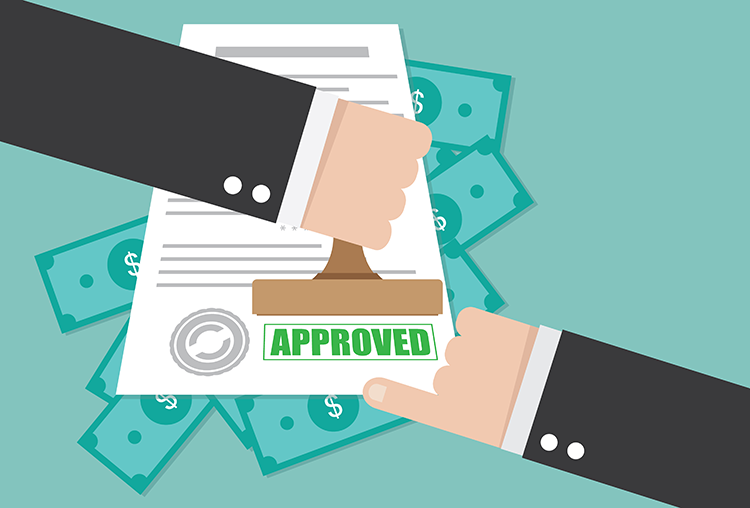
by Jeff Pittman | Feb 23, 2016 | Buyers
6 Reasons You Should Never Try To Buy Or Sell Without An Agent Save the DIY routine for your bath soaps and birthday presents. When it comes to real estate, you shouldn’t chance it without a professional. Buying or selling a home is a colossal investment, and mistakes can end up costing you thousands of dollars. Let’s go over just 6 instances when buying or selling a house without the assistance of a professional could turn into a very messy mistake. NEVER ENDING NEGOTIATIONS While many people think they are good at negotiating due to saving a couple thousand dollars off of the sticker price of a car, this is not really the case. For a huge investment like a home, it’s best to leave it in the hands of a real estate professional that has the experience of bullishly negotiating for the best price possible. Negotiations don’t end at the listing price – that’s simply where they begin. There are hundreds of points in your listing agreement that can be, and should be, negotiated and if they aren’t artfully done, you could end up leaving thousands on the table. MISSED CONNECTIONS One great thing about dealing with realtors and real estate agents is that they tend to be connected to nearly everyone in the community. Chances are they know the right brokers, home inspectors, lawyers and more to insure that your sale or purchase goes as smoothly as possible. Not only do real estate agents know vendors and other professionals, they also widen your pool of potential buyers when you are selling. They know other agents working with buyers...

by Jeff Pittman | Feb 18, 2016 | Buyers
3 First Time Homebuyer Mistakes That Can Cause Big Problems Later When you’re ready to buy your first home, it’s easy to get caught up in worrying about qualifying for a mortgage, or finding a home within your budget. And it definitely helps to talk with an Assurance Financial Group to be sure your new mortgage will be within budget. While these aspects are important, there are 3 other, often overlooked, factors you need to consider when viewing potential homes to avoid a costly mistake. Make sure you add these items to your walkthrough checklist. THE NEIGHBORING HOUSES Some new buyers may see blocks of clean, well-maintained houses and assume any home within that neighborhood will suffice. This can be a huge mistake. If you really like a house, take the time to make sure the surrounding houses are owner-occupied, or rented by long-term tenants. The last thing you need is to live next to rental houses with a never-ending parade of new neighbors, some of whom may be loud, untidy, or otherwise offensive. If a neighboring home is vacant and owned by a financial group or bank, it could be a foreclosure. Depending on your locality, a foreclosure could sit empty for years. If you live in a hot market, however, you’ll likely have new neighbors quickly. THE UPKEEP ROUTINE AND COST Before choosing a house, consider just how much work it will take to maintain. Crown moldings and hardwood floors can be gorgeous, but you’d better be prepared to dust compulsively. Flowerbeds can add charm and color to a yard, but every single one will need to be...

by Jeff Pittman | Jan 29, 2016 | Buyers
Sweetening The Deal – How To Craft A Seller Love Letter There are several things a buyer can do in a competitive market to stand out from the crowd and sweeten the deal when putting in an offer on a home. What has been gaining popularity is a personal cover letter to the seller accompanying your offer, AKA a love letter. A love letter is no regular valentine, but an earnest and thoughtful way of making a memorable impression on a seller – and ultimately a way to increase the chances of your offer being chosen. Adding an emotional edge could be just the trick to appealing to a seller. Here are a few guidelines to stick to so that your love letter is well received and pays out big. KEEP IT SHORT AND SWEET Sellers aren’t interested in reading a novel, so think about the most important things you want to say and get to the point. There’s no need to tell your entire life story, just a bit about what you love so much about the house and why you can’t live without it. The more streamlined you make your message, the more memorable it will be. We suggest keeping your letter between 200 and 300 words. BRING ON THE COMPLIMENTS It’s important to keep your letter positive and the best way to do that is with flattery. Flatter your seller and let them know how much you love their taste in landscaping, flooring choice or color patterns. Praise their family photos you saw hanging on the wall or their creative use of loft space as a...

by Jeff Pittman | Dec 10, 2015 | Buyers
How To Get Pre-Approved For A Mortgage Loan If you’ve read any tips for homebuyers then chances are you’ve heard that you need to get pre-approved for a loan about a million times. The question is – how exactly do you get the pre-approval? Here are the steps you need to take to get pre-approved and the most important facts you need to get you there. WHAT IS A PRE-APPROVAL? It’s a written statement from a lender stating that you would qualify for a particular loan under your current qualifications and the lender’s guidelines. A pre-approval letter is good for 60-90 days and the loan amount is based on your income and credit information. A pre-approval letter is not an offer to lend, a commitment to make a loan, or a guarantee of specific rates or terms. It is however an accurate idea of how much home you can afford. And most importantly as a homebuyer, it’s proof to sellers that you have done your homework and are serious about purchasing. PRE-APPROVAL VS. PRE-QUALIFICATION Getting pre-approved and getting pre-qualified are two very different things and only the pre-approval holds much weight as a potential homebuyer. A pre-qualification does not go as depth into your finances as it does not include an analysis of your credit report. To be pre-qualified you simply give a lender an idea of your debt, income and assets (no paperwork, just your word) and a lender can discuss your potential options. OBTAINING A PRE-APPROVAL LETTER First and foremost you need to choose a mortgage lender. Keep in mind that each lender has its own standards...

by Jeff Pittman | Nov 25, 2015 | Buyers
Real Estate Contract Terms – What Is A Sale Contingency? If you are planning a relocation or need to buy or sell an estate, you probably stumbled on the term sale contingency. Wondering what it means? In the broader sense, contingency means a possible negative economic event that may occur in the future, but is not likely. A contingency is used as a way to plan and mitigate certain financial risk by assuming a worst-case scenario. A home sale contingency is a standard contingency clause included in the real estate contract or an offer. With this clause in place, the transaction depends upon certain criteria, most commonly, the sale of the buyer’s estate. If the home sells by a specified date, the deal can move forwards. If, however, the house doesn’t sell the buyer can back out of the sale. Here is what buyers and sellers need to know about home sale contingency. TYPES OF SALE CONTINGENCIES The sale contingencies fall within two main categories: Settlement Contingency Sale and Settlement Contingency A settlement contingency is included in the contract if the buyer has already marketed their property and needs to sell by a certain settlement date. Since an estate is not truly sold until closing day, the sale may fall through at any time. This clause protects the buyer if this happens and prohibits the seller from accepting other offers during that period. If the buyer successfully sells their home by the certain date, the contract remains valid and they can successfully complete their relocation. Otherwise, the deal can be terminated. A sale and settlement contingency depends on whether...

by Jeff Pittman | Sep 25, 2015 | Buyers
On The Beach: What Does $5 Million Buy? Homebuyers with $5 million to spend are in a prime position to buy a luxury beachfront property in a host of fantastic coastal locations around the world. In the US, buyers can opt for their own private beach retreat in the jet-set destination of the Hamptons or the surfer’s paradise of Maui, Hawaii. Europe’s legendary beach resorts offer a timeless appeal; a beachfront villa on the fashionable island of Sardinia offers exceptional value as well as luxurious living spaces and breathtaking views of the Mediterranean. And in the tropics, the stunning property choices include a lavish oceanfront haven overlooking the tranquil turquoise waters of the Turks & Caicos or a stylish residence on world-famous Ipanema Beach in Rio de Janeiro. Explore what $5 million buys on the beachfront, ordered by homes with the largest square footage to the smallest: Redington Beach, Florida 8 Bedrooms, 8,627 sq. ft. This is one of the largest gulf-front properties in Pinellas County. The spectacular one-of-a-kind home has over 8,600 sq. ft. of custom designed, heated space spread over three stories, an 11-car garage and large gated driveway for more than 10 cars, and more than 3,700 sq. ft. of covered verandas. Cabo San Lucas, Mexico 7 Bedrooms, 6,072 sq. ft. A spectacular beachfront setting in Playa Tortuga in East Cape with all modern conveniences, yet completely self sustainable with solar power. The setting is second to none as the house rests on a view point looking East with endless beach and ocean views. Private patios, terraces, and guest houses allow for great entertaining for events and family....







